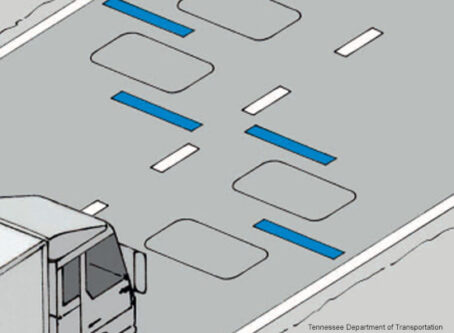Truckers spotlight predatory contracts at Truck Leasing Task Force meeting
With its latest meeting held at the Mid-America Trucking Show, the Truck Leasing Task Force had the opportunity to hear directly from truck drivers who have been negatively affected by predatory lease-purchase agreements.
The Truck Leasing Task Force was established by Congress with the goal of ending predatory lease-purchase agreements. In these arrangements, a carrier leases a truck to a driver but still possesses control for the majority of the operation. In fact, the carrier is in control of the trucker’s ability to pay off the loan. It is common for drivers to report owing money to the carrier at the end of a pay period.
Shelley VandenBerg, an OOIDA member from Garden City, Idaho, attended MATS on Thursday, March 21 in Louisville, Ky., and provided the task force real-world examples of how companies try to take advantage of drivers. VandenBerg told the task force members and FMCSA officials in attendance that these predatory carriers often use a bait-and-switch approach to get drivers to sign a contract. In 2018, she and her husband entered a lease-purchase agreement for a 2018 Kenworth T680.
“The brochure promised no money down and payments as low as $1,500 per month. But that wasn’t the case at all,” she said. “The maintenance costs were always 100% ours regardless of what the contract stated.”
Safety issue
Brian Stansbury, chief counsel for the Federal Motor Carrier Safety Administration, said that predatory lease-purchase agreements are harmful beyond the financial ramifications.
“The reality is that the safest drivers are the most experienced drivers,” he said.
FMCSA realizes that these agreements often prey on new drivers. After the lease-purchase fails, they commonly leave the industry and have to be replaced by another new, inexperienced driver.
“In many cases, we have seen drivers exit the industry in financial ruin,” Stansbury said. “This is not what we want. We at FMCSA want to ensure that truck leasing is a gateway to prosperity, not a pathway to suffering and exit from the industry.”
Tom Weakley, of the OOIDA Foundation, noted that inequitable contracts put stress on drivers and can lead them to make unsafe decisions in terms of how fast they drive and how they maintain the truck.
“When you’re under pressure and not able to make the payments, you might drive a little faster,” Weakley said. “You might do some things you wouldn’t normally do because you’re struggling to make those payments.”
Fix or end?
Paul Cullen Jr., a task force member with The Cullen Law Firm, suggested eliminating the model where motor carriers are the ones that loan the truck to the driver. Cullen suggested that this arrangement is a main source of the problem.
“No motor carrier should own the debt of the driver,” Cullen said. “They have supreme control over the driver, the driver’s finances, when they drive, how or when they prepare their truck. Why can drivers not get leased trucks from traditional leasing companies?”
In these instances, the same entity that controls the loan possesses the power to assign loads that will determine whether the driver is able to pay off the loan.
On the other hand, some have suggested that the few success stories are reason enough to create rules for improving the carrier lease-purchase model rather than eliminating it entirely – but not all drivers agree.
“There is no fixing it,” truck driver Justin Martin said. “It needs to go away.” LL









